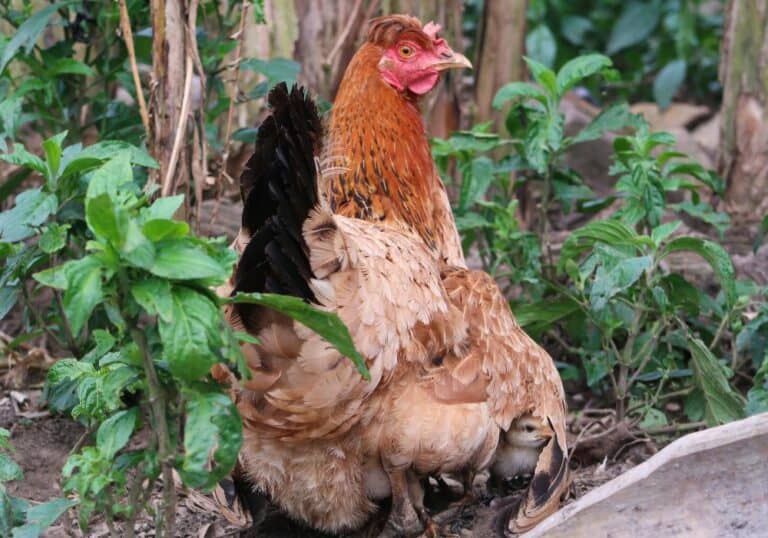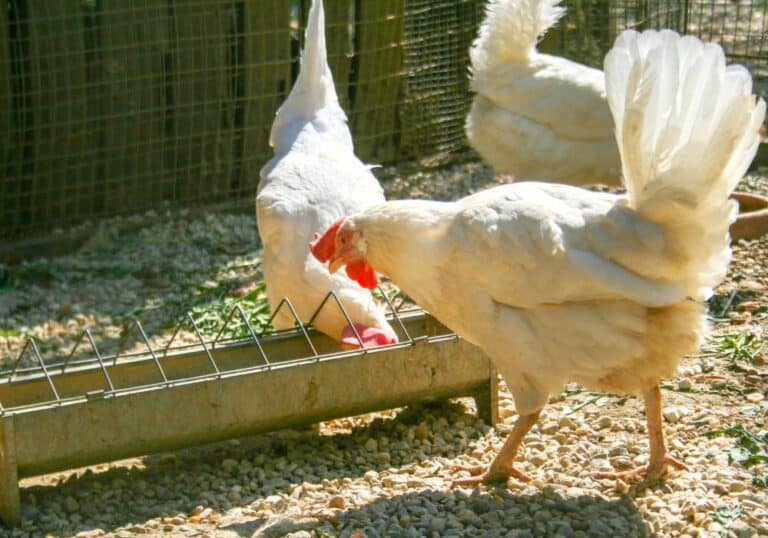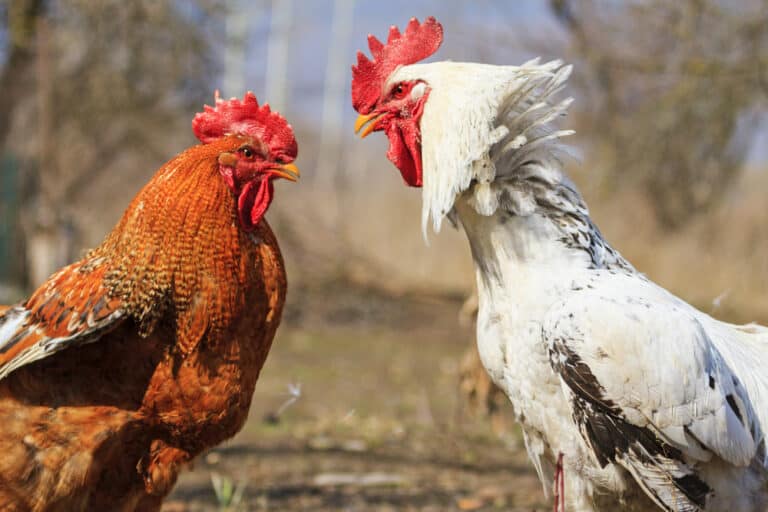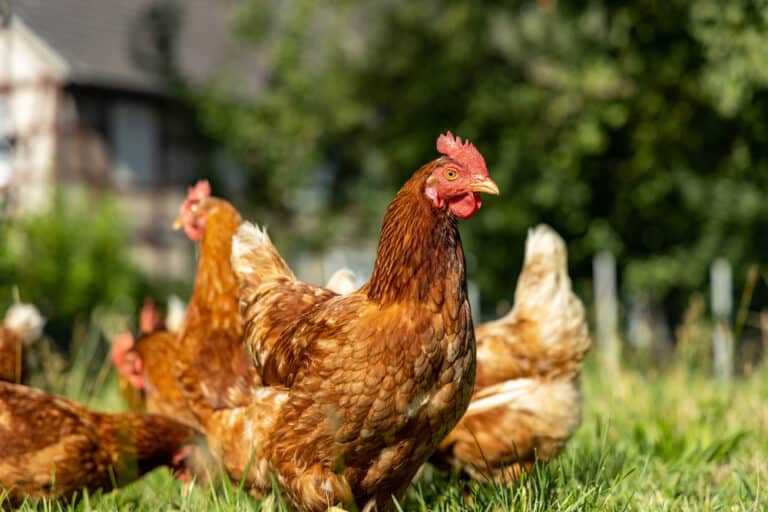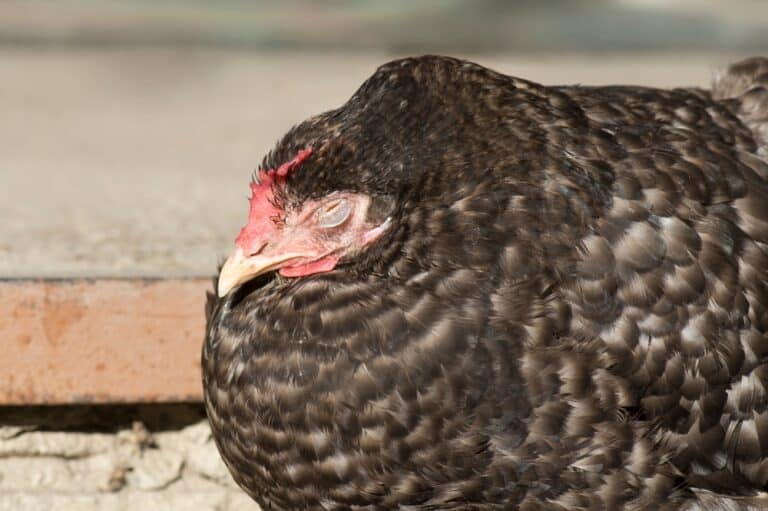Depending on who you ask, a broody hen can be a good or bad thing! If you’re looking for a hen to raise baby chicks, then great! However, if you have no interest in breeding or prefer to use an incubator, then a broody hen can be a big inconvenience.
Not only will they stop producing eggs, but they can become more aggressive, and irritable, and can even make themselves sick. So, join us in our complete guide on what you should do if you have a broody hen. Let’s get started by looking at exactly what we mean by a broody hen.
What is a Broody Hen?

Those who don’t know may expect that every type of bird would want to hatch the eggs that they lay, but it’s not true. This is especially common in chickens, as many breeds had their broodiness bred out of them.
However, there are still plenty of breeds out there that have broody hens. When broody, hens will want to sit on the eggs that she lays. Not only that, but she can become agitated and aggressive when not allowed to do so.
So what’s the problem? Firstly, if you don’t want extra chickens to look after then you won’t be interested in them hatching. Secondly, the hen will stop being productive and can even harm herself in pursuit of protecting her eggs. Let’s have a look at these negatives in more detail.
The downside of a Broody Hen
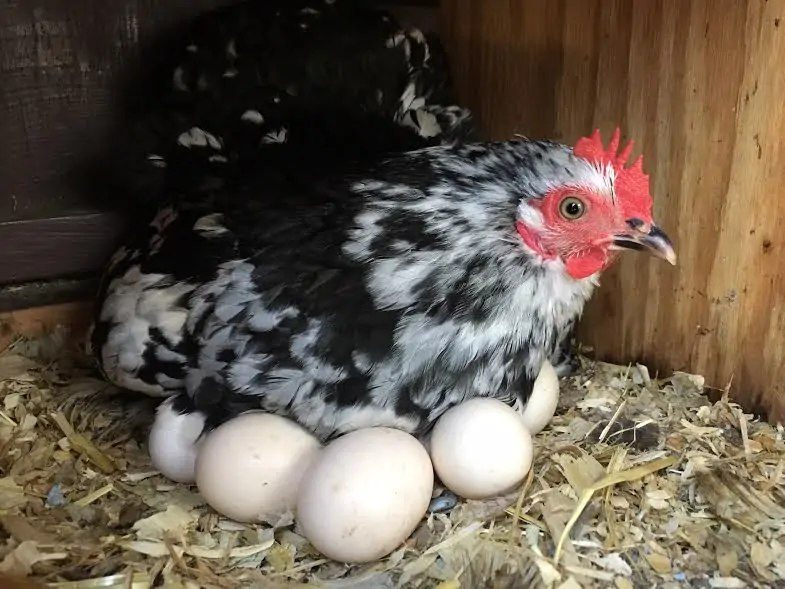
As we alluded to above, there are many reasons why you wouldn’t want a broody hen. Unless you are happy for them to sit on the eggs until they hatch, here’s why letting your hen be broody can be a bad idea.
- Plucked feathers – In what is quite a heartwarming act, a hen will often pluck out the feathers on her chest. They do this so the eggs have a closer connection to her body heat. While an impressive act of love, the hen will lose some of her insulation and protection.
It’s worth noting that these feathers will grow back but it can take a few months for them to get back to their former size.
- No more eggs – A broody hen is one that doesn’t lay eggs. If you enjoy eating your chicken’s eggs, then broody hens may mean a trip to the shops rather than picking them up from the coop. As far as the hen is concerned, she’s laid all the eggs she needs for now and will sit on them until they hatch.
The hen will continue to start laying again after being broody. If you break their broodiness, then you can get back to collecting eggs more quickly.
- They become grumpy – It’s completely understandable why a hen may be grumpy about someone taking her eggs away! Some chickens are great mothers and want to look after their little babies and will kick up a fuss if they can’t.
- Reduce food and water intake – A hen won’t want to leave her nesting box, as if she does, she risks those eggs dropping in temperature and not hatching. Due to this, many of them will stop eating which can obviously lead to a variety of issues.
You can often remedy this by taking food and water to them, but it’s not ideal. Also, they tend to poop less and when they do, it’s in very large hard droppings.
- More prone to parasites – A lot of the time, hens can avoid parasites by taking dust baths and moving around. However, a broody hen makes herself susceptible to parasites by staying in one place. If she does get infested, she’ll just sit there and suffer.
- Low hatch rates – Want to take the natural route and just let your hens be broody? That’s great, but the big downside is that the hatching rates will be much lower than if you used an incubator. All the hens’ hard work could be for nothing.
Will a Broody Hen Stop on Her Own?
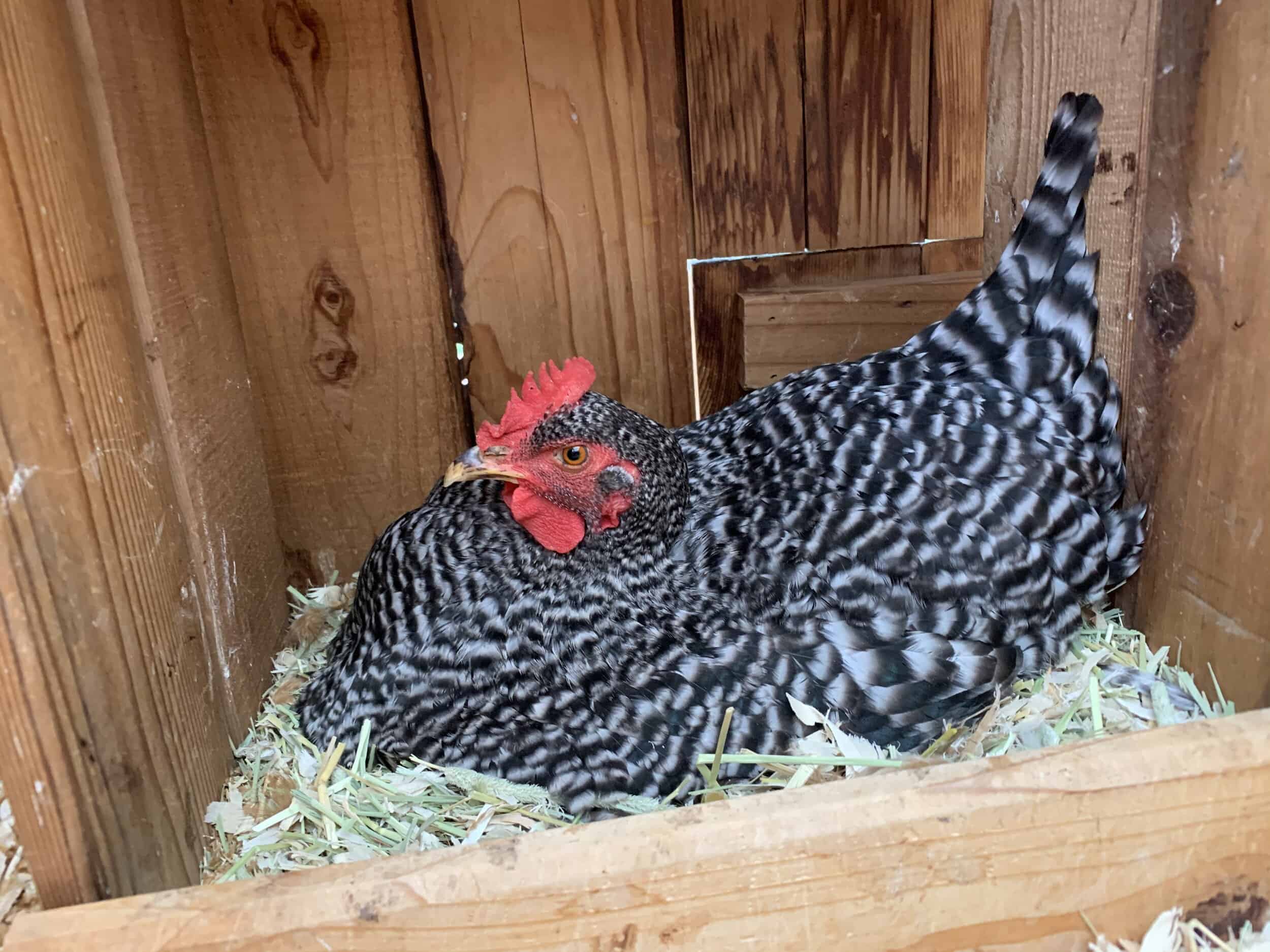
Generally speaking, it takes 21 days from the laying of an egg until it hatches, once it’s under incubation temperatures. This is almost always the same time that a hen will be broody. Sometimes it can be a little longer.
If you’re reading this and your hen has been broody for two weeks or more, then you may as well let it run its course. If your hen has only just gone broody, there are a few things you can do to stop it without harming her. Here we’ll check out more methods.
How to Stop Hens Being Broody
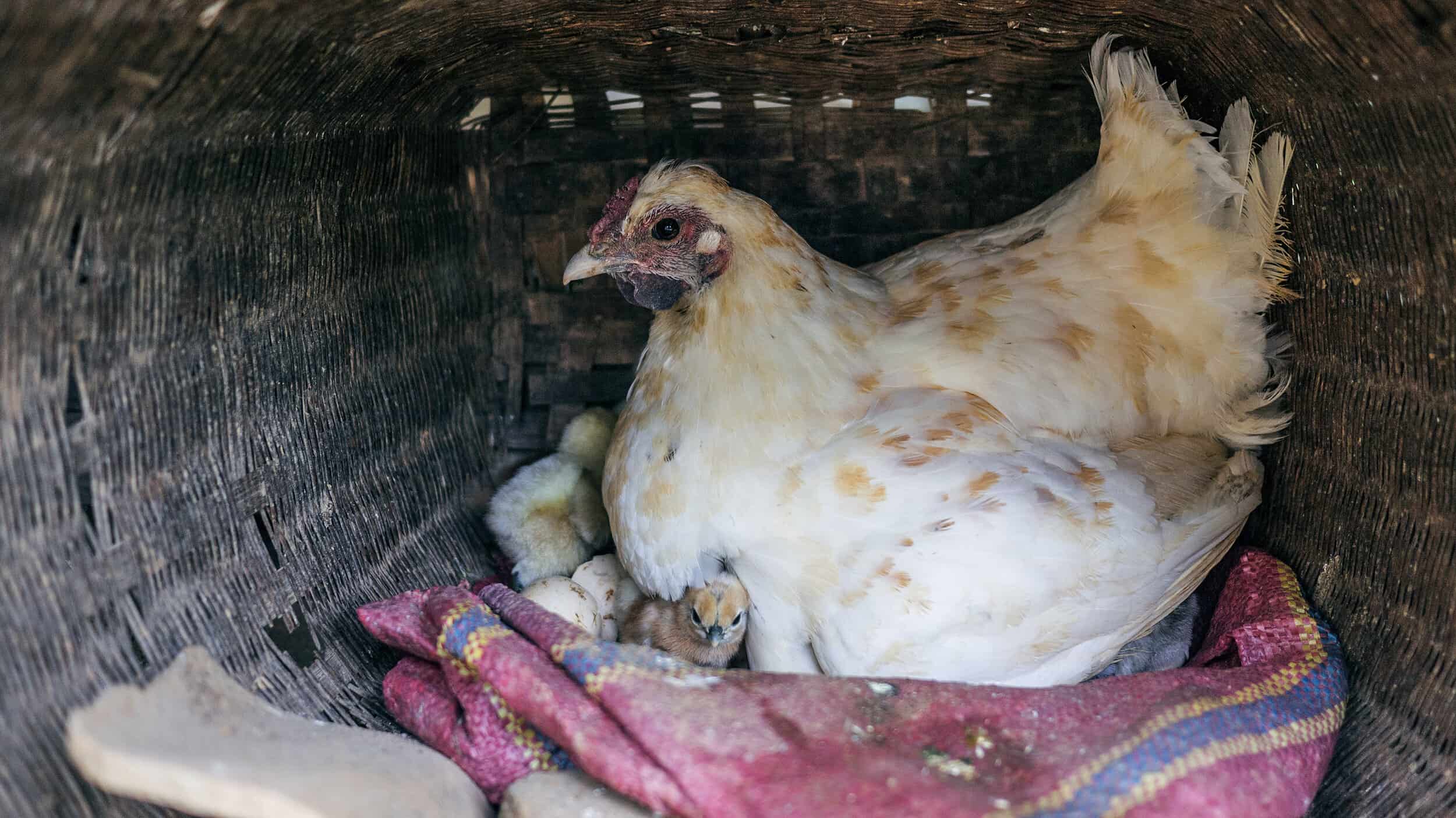
Stopping a broody hen is called breaking them, so how do you break a broody hen? There are a few methods to try. Some of them can feel a little harsh so here we’ll order them from least to most extreme.
- Collect Eggs – The first thing you can do is collect their eggs. In theory, this should remove any incentive that she has for being a broody. In reality, this often has a minimal impact on whether or not she’ll stay broody.
Of course, unless you want chicks or don’t want to eat the eggs, it makes sense to be removing them anyway. The hen may be a little grumpy that you’re removing their eggs but there will be no long-lasting emotional effects.
- Removing from the Nest – Perhaps the easiest way to break a hen is to repeatedly remove them from the nesting box for as many times as it takes. Some hens will go straight back to their nesting box, whereas others may give up the brooding process.
A great way to increase the chances of this working is to add a distraction in their run or coop. This could be a new toy or any device that may capture her imagination. The aim is to try and make her forget about laying eggs.
To take this to the next level, you can lock her out of the coop during the daytime and just let her forage around the run. This physically blocks her from getting to the nesting box but just make sure she has access to food and water.
- Make Her Roost – If that doesn’t work, then you can take her from the nesting box and place her on the roost at nighttime. If it’s dark, then she’ll often be too anxious to attempt to head back to her nesting box and instead will just stay on the roost.
- Block or Remove the Nesting Box – A hen can’t sit down to be broody if there is nowhere for her to brood. You can block off the nesting box (such as nailing a plank of wood in front of it) to try and break her out of the mindset of sitting on eggs.
- Make Her Cold – When a hen goes broody, her body temperature increases so that she can incubate her eggs. An effective way of breaking her brood is by bathing her in cool water which should lower her body temperature. Make sure the water isn’t too cold as this will only cause stress.
Another way to bring her temperature down is by placing something frozen in her nesting box. An ice pack is the best thing for this, but you can easily just place a frozen water bottle there or some frozen vegetables instead.
- Lock Her Up – If all else fails, you need to lock her in a cage and not give her access to any nesting material or usual comforts. You just need to give her access to food and water, and that’s it. After a day, you can integrate her into the rest of the flock and see if she’s over her brood.
If not, you can repeat the process as many many times as required until it works. It’s extremely rare for any hen to go more than three days before she stops being broody. You may feel uncomfortable doing this, but it can be effective if everything else has failed.
Is It Ethical to Break a Broody Hen?
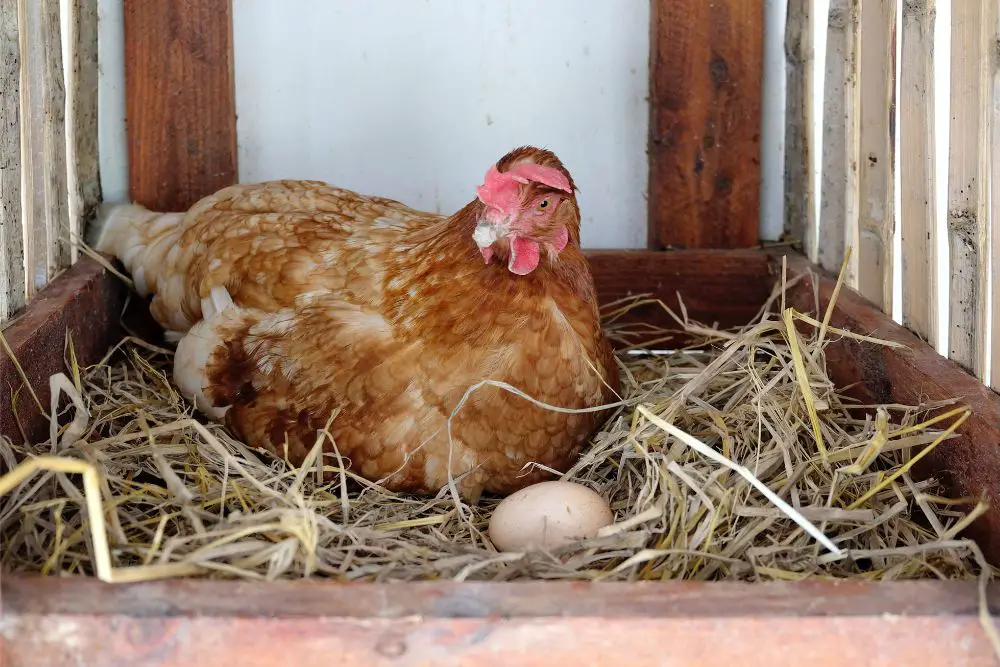
We get it, you love and care for your hens so doing something like locking them up in a cage for a few days or placing frozen items in their nesting box may seem cruel. However, most chicken owners see this as the better of two evils.
As we’ve looked at above, there are many downsides to a hen being a broody. If they are going through that to raise their own chicks, then it’s seen as a worthwhile sacrifice. However, if they are going broody for no reason, then it makes sense to break it.
Rather than going through 21 days of lost appetite, plucking out feathers, and being more susceptible to disease, you can break them out of it in a couple of days. Most of us would rather go through a couple of days of discomfort than three weeks of it.
Of course, you can always take the opportunity of a broody hen to add more chicks to your flock. Also, a broody hen will happily incubate the eggs from other breeds. So, if you had a non-broody breed, then you can get your broody hen to raise their chicks for them.
Do Broody Hens Get Sad When Eggs Are Taken?
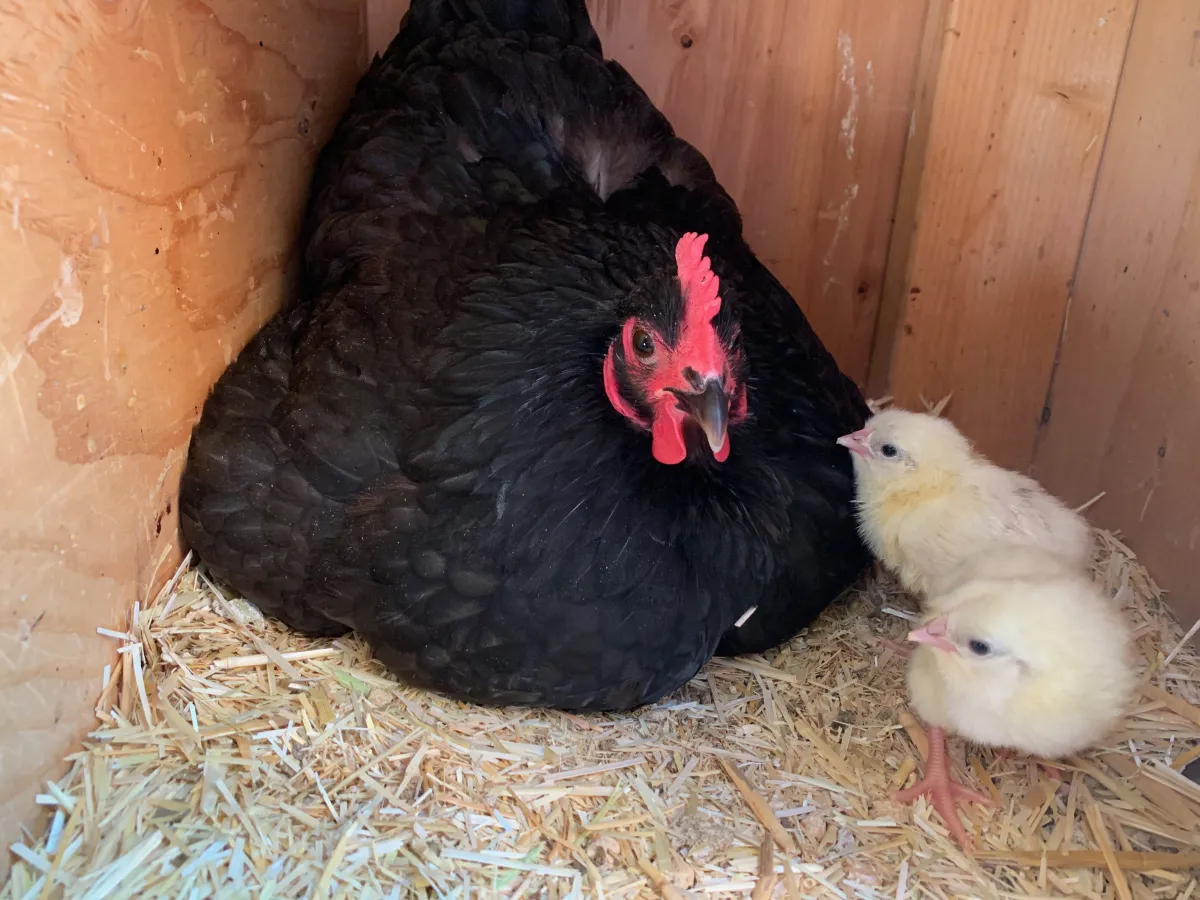
As humans, we often feel as though animals can think like us. There is perhaps no greater fear for a human mother than their child being taken away from them! However, chickens don’t think like we do!
There are no negative long-term emotional changes when you take away a hen’s eggs, even for the broodiest of breeds. You won’t see any signs of depression or sad behavior, and they won’t resent you for taking their eggs away.
While there is no lasting sadness, there can be some aggressive and grouchy behavior when you take their eggs. They can get a little protective while it’s happening but as soon as those eggs are gone, they’ll quickly get over it.
How To Prevent a Broody Hen
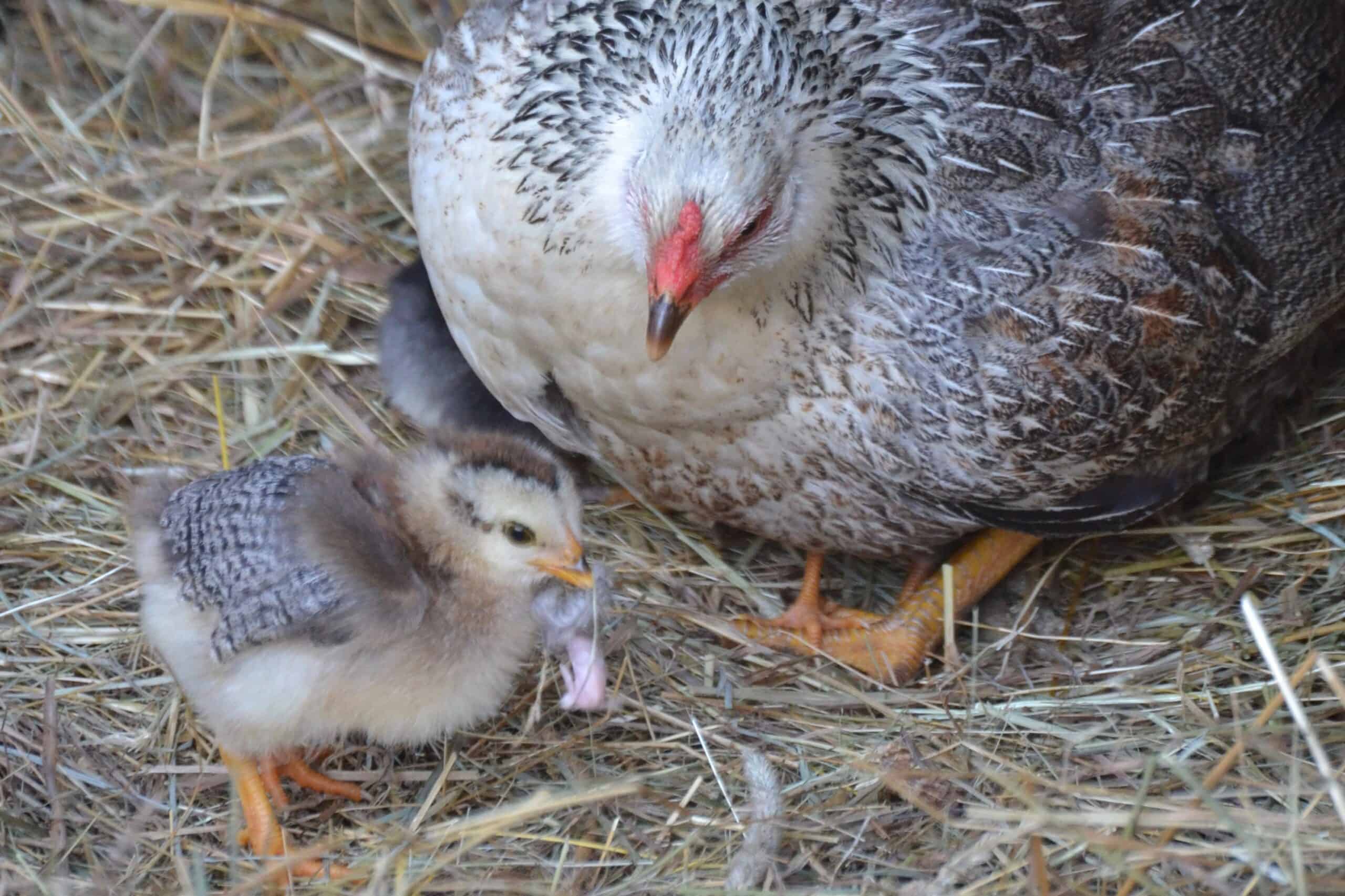
Sometimes your hens go broody and there is very little you can do about it. While it can happen no matter what you do, there are a few things you can try to prevent it.
- Collect the Eggs – Going broody is triggered by a few things, including your hormones. If you collect the eggs very quickly after they’ve been laid, there is less chance of your hen going broody. It’s a good idea to check your nesting boxes a few times a day.
- Lock Nesting Boxes – When broody, hens will stay in their nesting boxes for most of the day, including the night. If you deny them access to nesting boxes at night and make sure they roost, they are less likely to go broody.
- Have Cool Nesting Boxes – You can also change your nesting box to have more airflow underneath. This can help to prevent your hen’s body temperature from rising. The best way to do this is with some wire mesh.
- Distractions – Around the time that she usually goes broody, you can increase the number of distractions that she has in her coop and run. Make sure there is plenty of mental stimulation and she doesn’t get bored.
It’s good to know when your hens are likely to go broody so you can take measures to prevent it. While it can change between hens, they usually go broody when the weather starts to warm up at the beginning of spring.
Of course, the other solution is to have hens that don’t get broody. The Plymouth Rock, Leghorn, ISA Brown, and Rhode Island Red are just a small selection of productive chickens which very rarely go broody.
Conclusion
A hen going broody is completely natural but there are some solid reasons why it’s not only bad news for you, but also the hen. Unless you and the hen want her to lay on some fertilized eggs, then you’ll want to break her brood.
As we’ve seen, thankfully there are a few different ways of going about it. Try the methods above and hopefully, soon your beautiful hen will be back to normal.

